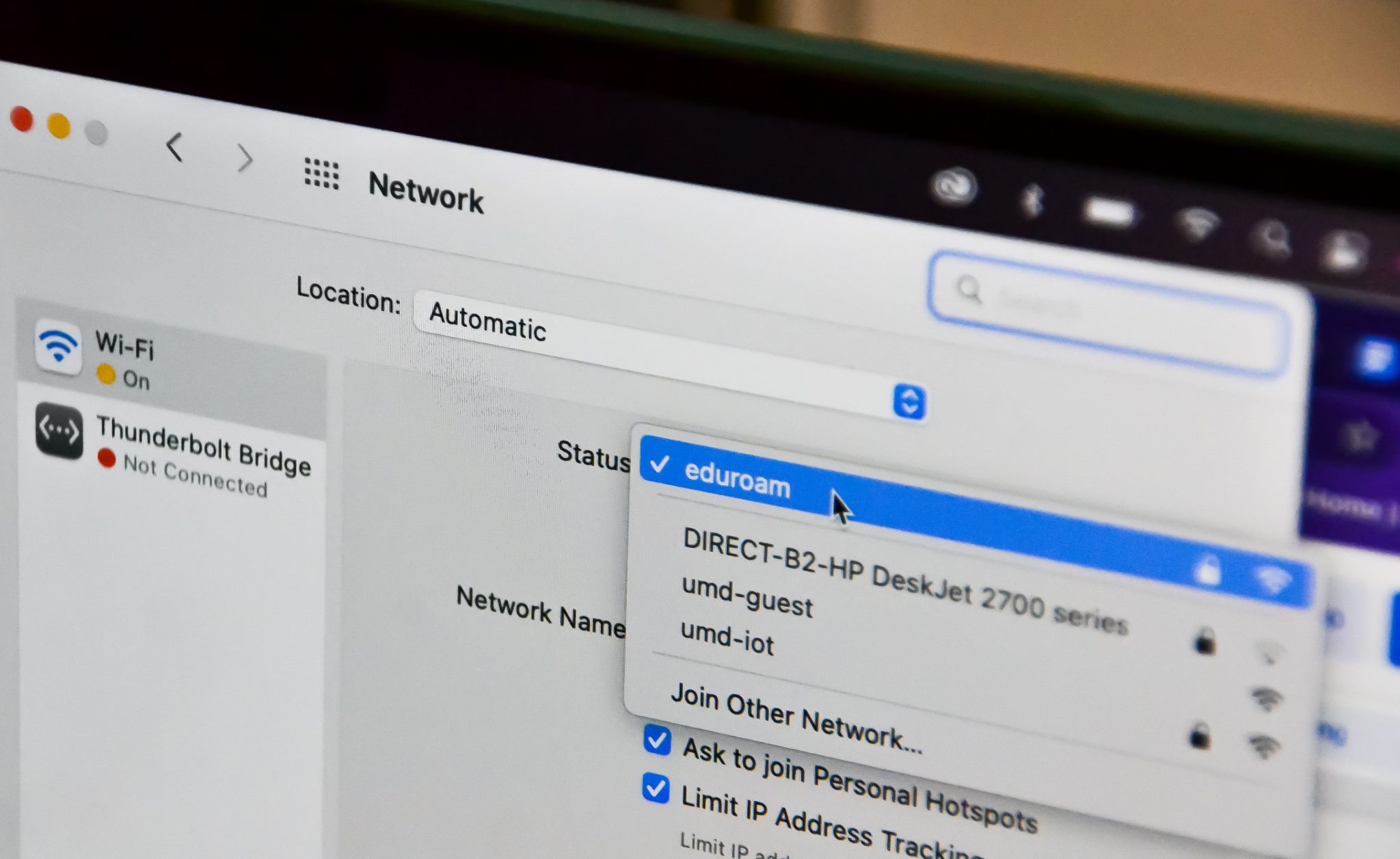Views expressed in opinion columns are the author’s own.
Struggling with eduroam is a core part of the college experience at this university. Whenever you need it most, it always lets you down.
Studying or doing homework at McKeldin Library? Sometimes it works, sometimes it takes forever to connect and sometimes it just won’t. A timed online exam? Bet that your Wi-Fi will go out at some point. It’s a rite of passage for students at this school to have an outage when they need the internet the most. Go to the bathroom? You may be sitting there contemplating your life decisions, but you probably won’t be using the internet.
Poor internet connection is a maddening problem University of Maryland students deal with. And in some sense, we don’t have a choice in the matter.
As students, we have to accept there will be kinks in the system. However, this university holds a responsibility to its students and faculty to do a better job at communicating when and where students should expect spotty coverage. It also needs to begin providing resources students can use to establish better connections when they need it for online coursework. In addition, this university’s Department of Information Technology should expand its notifications beyond just emails, which many students likely end up ignoring, to text message notifications.
The university relies on eduroam, an international internet roaming service that provides internet to universities across the globe. The idea is to allow students and faculty traveling to conferences and conducting research with other institutions to connect to Wi-Fi immediately, without desperately searching for a source of free Wi-Fi.
While the eduroam system is an ingenious way of providing open, accessible internet to institutions around the world, it doesn’t provide fast, reliable internet access to those who have to rely on it every day.
Given that eduroam has been adopted by 900 colleges, universities and research facilities just in the U.S., it is ill-advised for this university to upend its connection to a global community of researchers. But just because the system shouldn’t be replaced doesn’t mean it cannot be improved. This university needs to be more proactive in effectively timing and communicating when outages happen.
On Sept. 15, this university decided to switch the email used for user authentication on the network, and it updated wireless certificates associated with internet connection. While this university’s IT department did send out an email stating basic information about how users should make the switch, it did not include specific enough troubleshooting information. As a result, many students had difficulties connecting to Wi-Fi throughout the day.
Worse yet, better troubleshooting information was distributed through a Reddit post by this university’s IT department. If you either don’t use Reddit, didn’t happen to open it on that day or couldn’t because you couldn’t connect to Wi-Fi, you were simply out of luck. This whole jumbled mess of communication is unacceptable.
First off, emailing students is not the most effective way of distributing information. For crucial updates, sending text notifications to students would be convenient and would have a better chance of reaching a larger number of students. We are all constantly on our phones mindlessly scrolling through social media or texting anyway.
Furthermore, if a student’s connection goes out during an online examination, they usually have to prove to their professor there was an actual issue, and they are not just simply trying to push off their exam. In my experience, many professors are not very understanding about these issues, but showing more flexibility could put a lot of anxious students at ease.
When I came to the campus at the beginning of my freshman year, I certainly did not expect to be thinking about whether I would be able to have Wi-Fi when I needed it. I never thought I could potentially fail an exam due to Wi-Fi issues entirely out of my control. Every student at this university needs to know from the outset that their internet will be spotty. In addition, students need to be advised on how they can improve their internet speeds.
For instance, this university should provide ethernet cables to students to ensure high-speed internet when we truly need it for online exams and synchronous virtual lectures.
Addressing the constant Wi-Fi issues at this university is a multi-step process that requires consistent communication from this university’s IT department.
While the trials and tribulations of Wi-Fi at this school are likely here to stay, effective communication and giving students the resources we need to make the best of the situation can help alleviate problems. Hopefully someday, I will finally be able to use my phone in a campus bathroom.
Ravi Panguluri is a sophomore computer science and statistics major. He can be reached at rpangulu@umd.edu.



